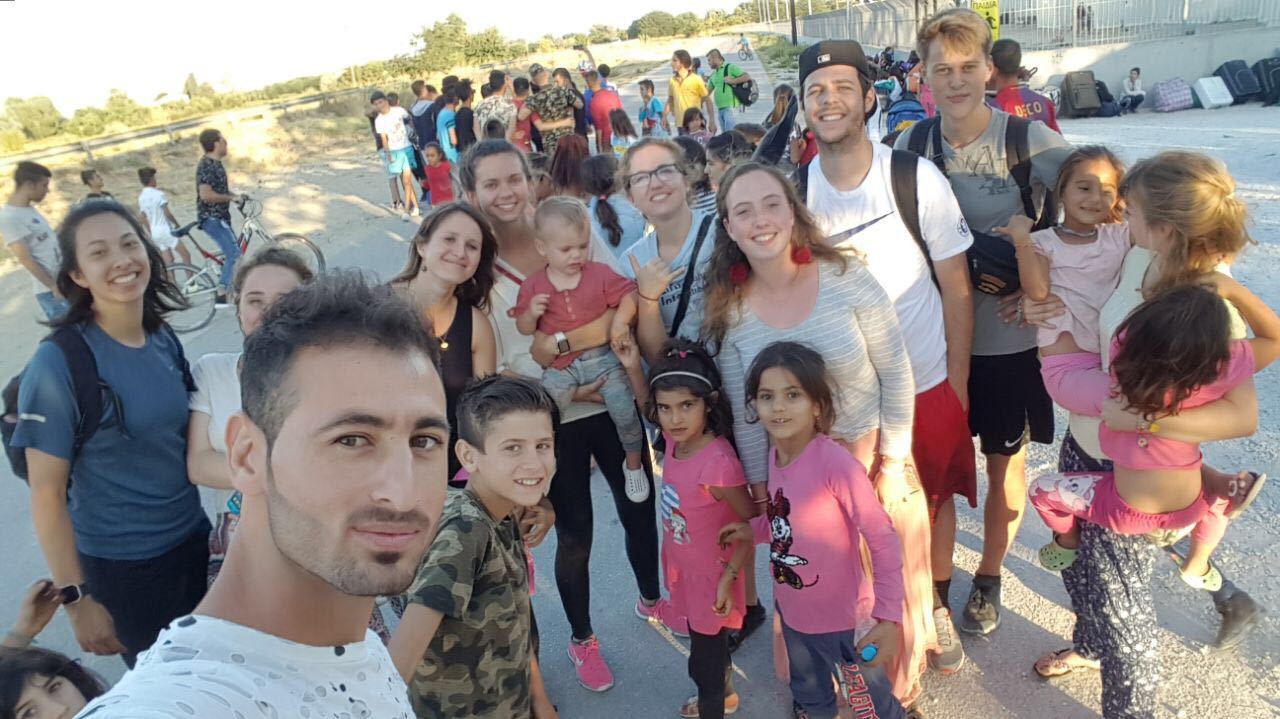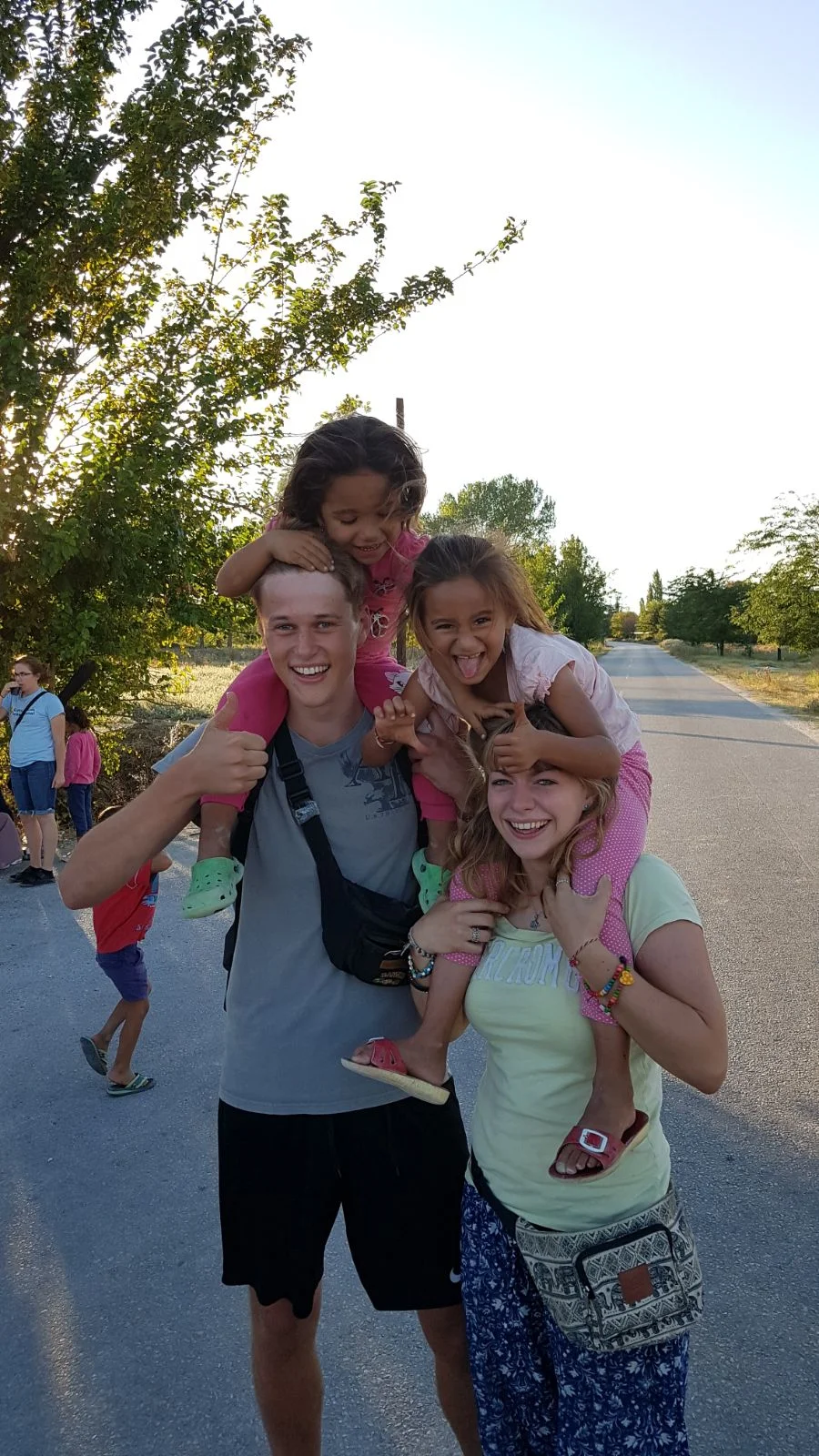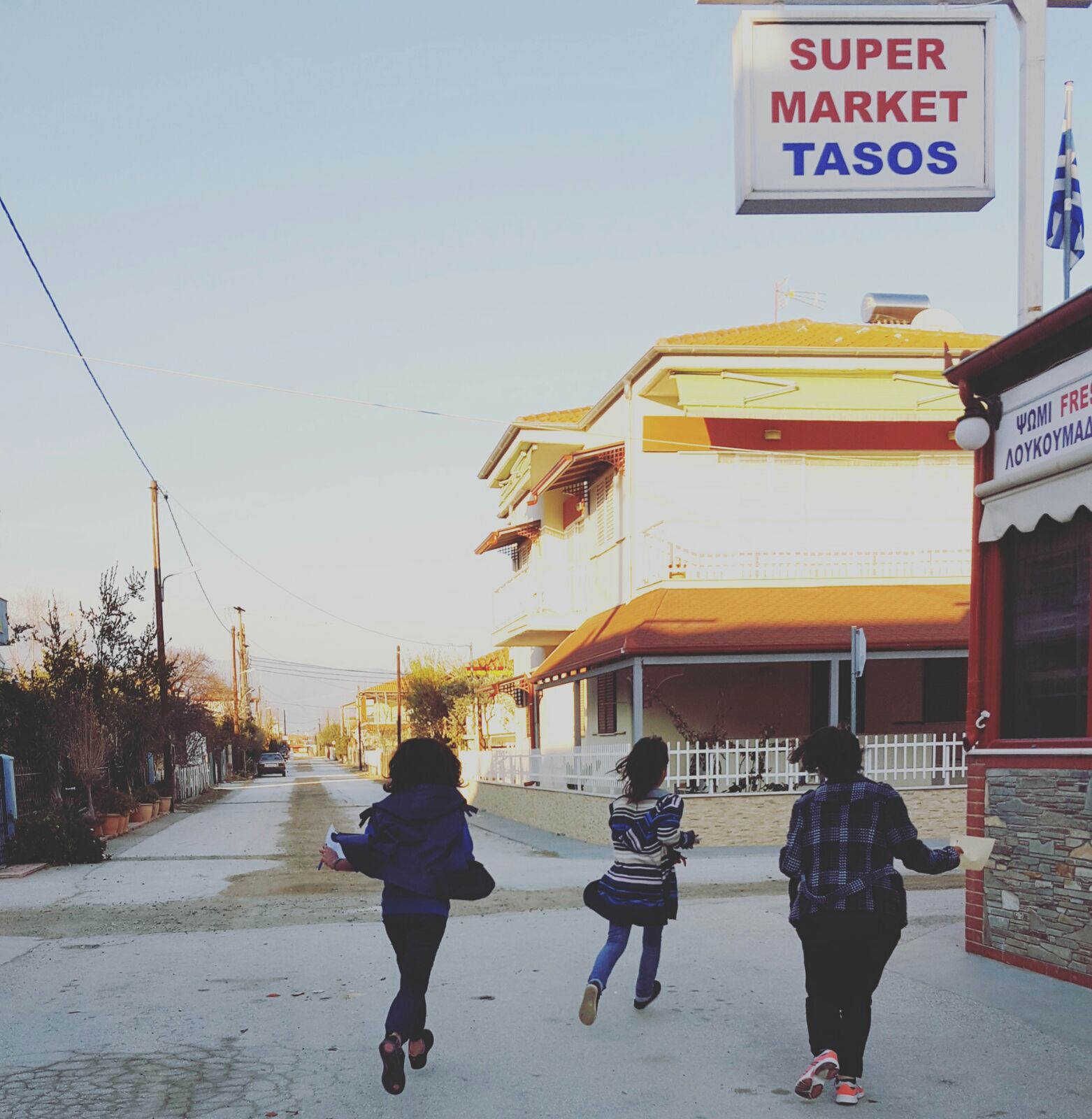Well, it has been just over a week since I left my yazidi friends and fellow volunteers in Northern Greece, to do a little traveling and then return to home to the states. I’m struggling to put to words what I want to say about my time there, but know that I mostly want focus on the people that I was blessed to meet. They are my new heroes, some of my new best friends, and just all around good people, Knowing these faces as individuals has helped me separate them from just the blanket title of “refugee,” with all its connotations that we so easily glean from the media, and to instead see them as friends. Though these friends certainly are refugees, and have experienced much of the sorrow and horror that you might expect from one in their circumstance (and usually worse than we’d imagine), I know more certainly that such a title does not define them. It is an experience they’ve been forced into, and one that is greatly shaping their future, but it is not who they are. This is something I knew before going, but is something I feel and know more deeply and honestly, now.
One of my early experiences in Greece helped me to come to understand this a little more. A few of us were visiting with a young family there—a man and his wife, two of their children, and an 18-year-old nephew. We were talking and eating, smiling, and trying to share a nice evening together despite our great language differences affecting communication. I don’t remember the exact context, but as the nephew and I began to talk, he mentioned that he loved photography. He began to show me pictures that he’d taken on his phone—of him posing in different settings, of friends and family, and then many of the sunrise, which he’d sometimes wake up for very early in the morning. (He did so with the intention of taking such photos and appreciating the calm and beauty.) It was such a simple thing—showing me some of his photography—but it helped me to know him more personally, to know him more as an individual, as Hashim. Hashim and I then had that connection of photography, as jetlag had “helped” me wake up long before sunrise earlier that week, and I too had ended up taking many photos as the sun rising over the sea. It was so lovely to see that slow, steady reminder of beauty in the world, and of consistent hope despite the chaos that was ensuing around the world. Starting that day, Hashim and I were becoming friends, and I was able to see and know him more as himself and not just his circumstance. I’ll be forever grateful for that.
Some of those I was able to get to know and love the best, were the students in my Advanced English class. I took over the task of teaching this class of 8 girls, and it was one of the best experiences of my life. Those girls are amazing, and are now some of my best friends. I could regal anyone who is interested with hours of stories about my time with each of them, about how quick they were to pick up new words and how they begged for homework every day, how deeply they ache for learning, about the poems they wrote, or about our fun and silly walks and inside jokes, or about their deep desire to share and feel happiness. But because no one will read an entire novel on a single blog, I’ll just share a few random memories that stand out to me at this moment.
After one of my first classes upon arriving, my student Widian and another volunteer and I decided to go walking down the beach to enjoy the unusually warm day. Widian immediately grabbed my arm as we walked, and down the beach we went, with Widian laughing at me because of how excited the sunshine and outdoors were making me. The sunshine was making me a little giddy, and I told them that I was so happy to be outside that I felt like doing a cartwheel on the sand. Widian did not know what a cartwheel was, so my teammate Leah and I began to teach her. It was hilarious to see us all trying desperately to do cartwheels in the sand with our heavy boots—and Leah and I’s poor teaching skills. It led to a lot of sitting in the sand, laughing, and to the building of a strong friendship. Widian may still struggle with doing cartwheels (she tried again just last week), but the memory is something we laugh about when we think of how we first became good friends. She has become one of my best and dearest, since then.
Another memory that sticks out to me—perhaps because it is so recent—comes from one of my last nights there with my friends in Greece. As one of my girls and I walked home from a dinner we had attended, hosted by friends from another local nonprofit, we got to talking a little about her experience that led her being a refugee there in Greece. She said she had only told her story 3 times, because it was very difficult, but she was willing to tell me anything if I wanted to know. I assured her she did not ever need to speak of it to me unless she felt the desire to, and so we walked down the dark street, watching the ocean waves and trying to hold onto the fun memory of the evening we’d just had. But as the waves continued to crash alongside us, she began to speak to me about her experience crossing from Turkey, about being shot at by the Turkish military, about her fears of the large waves, and also fear of what would happen if the boat would have to turn back. I told her how brave she was—to be where she is now, to keep up such a bright hope and willingness to smile and give love and to laugh after all she has seen and suffered. But she denied being strong. “I am not strong,” she said, “not strong at all. I cry everyday. What good does that do? I am not strong. Others in the class, they are strong because they can talk about this, and because they smile. But me, what good does it do that I still cry everyday? Nothing.” This was coming from a 13-year-old girl who has shared her story with a few media outlets to help try and improve the situation of her people. And even if she hadn’t? This is a girl who has seen death and suffering, who has moved from country to country trying to seek a better life while fleeing some of the greatest and most malicious evil in the world today, and yet who I still saw with a smile on her face each day. This is a girl who wakes up each day and eagerly attends classes to learn English and guitar, who is obsessed with football, who asks for books from Einstein and Stephen Hawking because she wants “to learn everything!!”, who babysits other family’s children to give them a break, who offered me her shower when our hotel’s water was shut off, who laughs daily, who likes to run and wanted to participate as a virtual racer in a race halfway across the world, who dreams of moving to Canada and attending university, and who is fighting everyday within her circumstances to maintain hope and to build a future for herself, wherever she is. She is strong. She is brave. She is one of my heroes.
Each of the girls in that Advanced English class could have the same said of them. Each of the residents I met and associated with each day could have the same said about their amazing resiliency and maintained human decency and hope and kindness and strength. I am so humbled to know them, and to call them my friends. Another of these young girls wrote me a paper about herself. She ended it with these words: “I don’t hate anyone, and I can’t hate anyone because my heart is full of love of my family and my friends and I don’t have any place in my heart to hate anyone. Why don’t we love each other instead of hating each other? “
I’ll just finish with a poem another of my students wrote:
They still ask me: ‘how much do you love your friends?’
And I tell them,
How many drops of water are there in the sea?
They say, ‘That is not an answer,” and I tell them
My love for my friends is like this:
All the words in the world are not enough to express
My love for my friends.
--Shirin K.
I love these, my yazidi friends. I hope to never forget what they have taught me. I hope the world will start to see them as people, just like you and me, and that we reach out to help them, like our brothers and sisters that they are.








